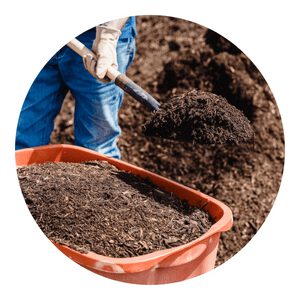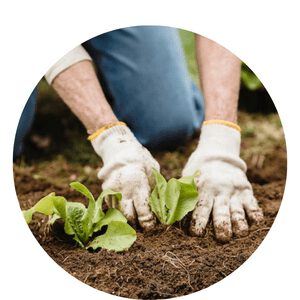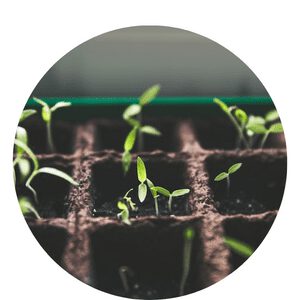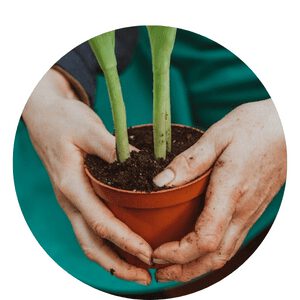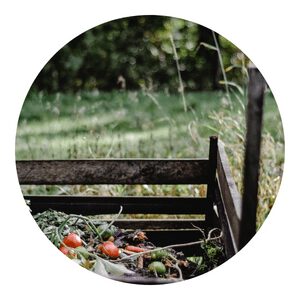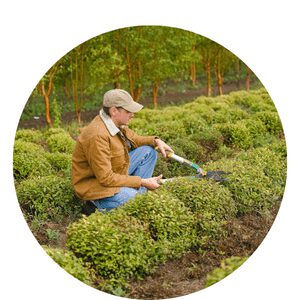Understanding the Basics of Organic Gardening
Organic gardening is becoming an increasingly popular form of sustainable agriculture.
It involves the use of natural and renewable resources to grow food without harm to the environment or health.
Understanding the basics of organic gardening can help you have a successful harvest year after year.
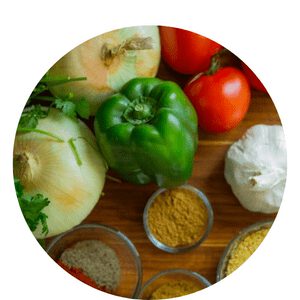
Organic Gardening Chapter 1
Introduction to organic gardening
Organic gardening is a growing trend that has become increasingly popular in recent years.
With organic gardening, gardeners are able to create beautiful outdoor spaces while ensuring the safety and integrity of their family and the environment.
Organic gardening can encompass a variety of different methods depending on what needs to be achieved, but at its core it involves using natural materials and avoiding synthetic chemicals.
Organic gardening requires a bit more knowledge than traditional gardening, but with some guidance, anyone can learn how to get started on their way to becoming an expert organic gardener.
This article will provide readers with an introduction into understanding the basics of organic gardening so they can start creating their own sustainable outdoor space.
We will discuss topics such as selecting plants for your garden, composting techniques, soil care tips and more.
What is organic gardening and why is it important?
Organic gardening is a rewarding and sustainable way to grow your own food.
It not only gives you control over what goes into your body but also provides a unique opportunity to exercise your green thumb and get closer to nature.
Organic gardening involves growing plants without the use of synthetic fertilizers, pesticides, or other chemicals.
With an understanding of how organic gardening works, anyone can cultivate their own nutrient-rich fruits and vegetables in their backyard or container garden.
See the beauty in the dirt That lives beneath your feet Bring the nutrients up to life Creating a garden so sweet Water often with care Mulch when necessary too Harvest from plants with bounty fair This is the basics of organic you must do.
Chappy The Gardener
The principles of organic gardening
Organic gardening is the practice of using natural and sustainable methods to grow plants without the use of synthetic chemicals and fertilizers.
Organic gardening is becoming increasingly popular as gardeners seek to protect the health of their families, pets, and the environment.
Understanding the basic principles of organic gardening will help you create a healing oasis in your backyard.
Organic farming practices encourage biodiversity through companion planting, crop rotation, and attracting beneficial insects.
The goal is to create a healthy ecosystem that reduces pests naturally while producing nutrient-rich fruits and vegetables.
Composting kitchen scraps and yard waste provides valuable nutrients for your soil while preventing these items from cluttering up landfills.
Additionally, organic gardeners rely on natural treatments such as neem oil or garlic sprays rather than chemical insecticides to keep harmful pests away from plants.
The benefits of organic gardening for the environment
Organic gardening is an important practice for preserving the environment and its natural resources.
A process of organic gardening uses only natural materials, such as compost and manure, to nourish soil and promote plant growth.
It avoids the use of synthetic fertilizers, pesticides, antibiotics or genetically modified organisms (GMOs).
The benefits of organic gardening for our environment are numerous.
Organic gardens reduce pollution by avoiding the use of toxic chemicals that can enter our waterways.
Organic practices also conserve water by preventing runoff from leaching into groundwater supplies.
Additionally, organic gardens help reduce soil erosion by using compost to improve soil structure and fertility over time.
This helps prevent topsoil loss due to wind or rainwater runoff which can lead to damaging floods or landslides.
Furthermore, organic gardening encourages biodiversity which naturally keeps pests in check – no need for chemical pesticides!
The benefits of organic gardening for plants
Organic gardening is an environmentally friendly and sustainable way to grow plants without the use of synthetic fertilizers and pesticides.
This method of gardening focuses on natural methods, such as composting and crop rotation, to provide the soil with nutrients and protect against pests.
Organic gardening has many benefits for both people and plants alike.
Organic gardens are beneficial for plants because they provide them with healthy soil full of microorganisms that help nourish their root systems.
Additionally, organic gardens create a better balance between insects that can damage crops and those that can act as predators to keep their populations in check.
Furthermore, organic gardens get rid of the need for synthetic fertilizers which can be harmful when overused or used improperly.
Lastly, organic gardening reduces air pollution by eliminating chemical runoff into waterways or being breathed in by gardeners who use it on a regular basis.
The benefits of organic gardening for humans
Organic gardening is becoming increasingly popular among gardeners who are looking for a more sustainable and eco-friendly way to grow their plants.
Organic gardening techniques rely on natural fertilizers, natural pest control methods, and other environmentally responsible practices.
Understanding the basics of organic gardening can help ensure that you get the most out of your efforts while minimizing any negative impacts on the environment.
Organic gardens are beneficial to both people and the environment.
Not only do they produce healthy, nutrient-rich foods without harmful chemicals or pollutants, but they also reduce reliance on synthetic fertilizers which can pollute waterways and damage fragile ecosystems.
Additionally, maintaining an organic garden can result in fewer trips to the store for produce as well as healthier meals at home since there is no need for pesticide residue on fruits or vegetables from a conventional garden.
The role of soil health in organic gardening
Organic gardening has become increasingly popular in recent years, but it isn’t just about avoiding pesticides and synthetic fertilizers.
One of the core principles of organic gardening is maintaining healthy soil.
Soil health plays a key role in helping plants to thrive and produce nutrient-rich fruits and vegetables.
Healthy soil is essential for organic gardeners because it provides necessary nutrients while also supporting biodiversity.
Healthy soil contains beneficial organisms like worms, fungi, bacteria, and protozoa that help break down organic matter into usable nutrients for plants.
Composting can also improve soil health by adding necessary microorganisms to the mix which encourages plant growth.
Finally, regular mulching helps reduce erosion and conserve moisture in the soil—both important for keeping soils healthy over time.
Tips for improving soil health
Organic gardening is becoming increasingly popular, as more and more people are looking to create a healthier, eco-friendly environment.
With a few simple strategies, you can improve the health of your soil and achieve better results in your organic garden.
Here are some tips for improving soil health:
First, be sure to use organic fertilizers and mulches that will nourish the soil without introducing harmful chemicals or synthetic materials.
For example, compost provides nutrients such as nitrogen and phosphorus that help plants grow strong and healthy.
Other natural amendments like manure or seaweed can also be used to replenish depleted soils.
Second, avoid using tillers or other mechanical tools as much as possible when preparing beds for planting; this will help minimize damage to beneficial organisms living in your soil.
Instead of tilling, consider adding layers of mulch on top of the existing soil.
In conclusion, organic gardening is a great way to grow healthy, delicious fruits and vegetables.
It requires more effort upfront, but the long-term benefits are worth it.
The key points to remember include: avoiding synthetic fertilizers and pesticides, creating rich soil with compost and mulch, controlling pests naturally, and choosing organic seeds or starter plants.
By following these steps, you can have beautiful, productive gardens without sacrificing your health or the environment.
Now it’s time to get out there and start planting!
Click To Grow
Helps Us Grow – Share If You Like











